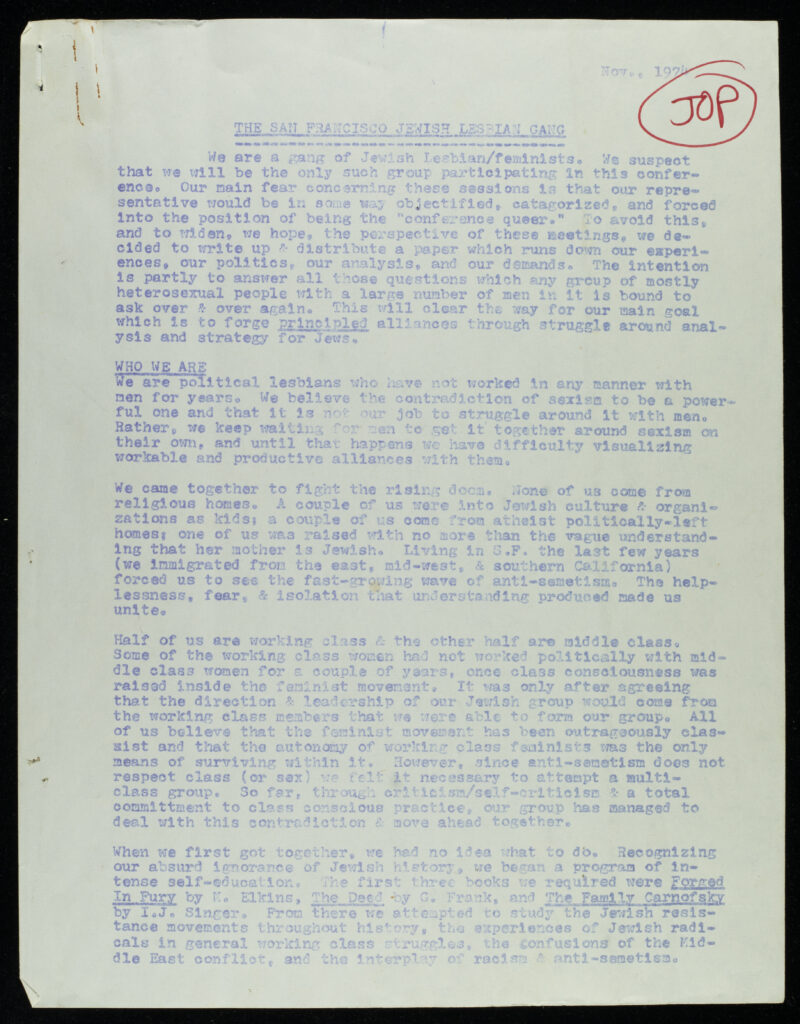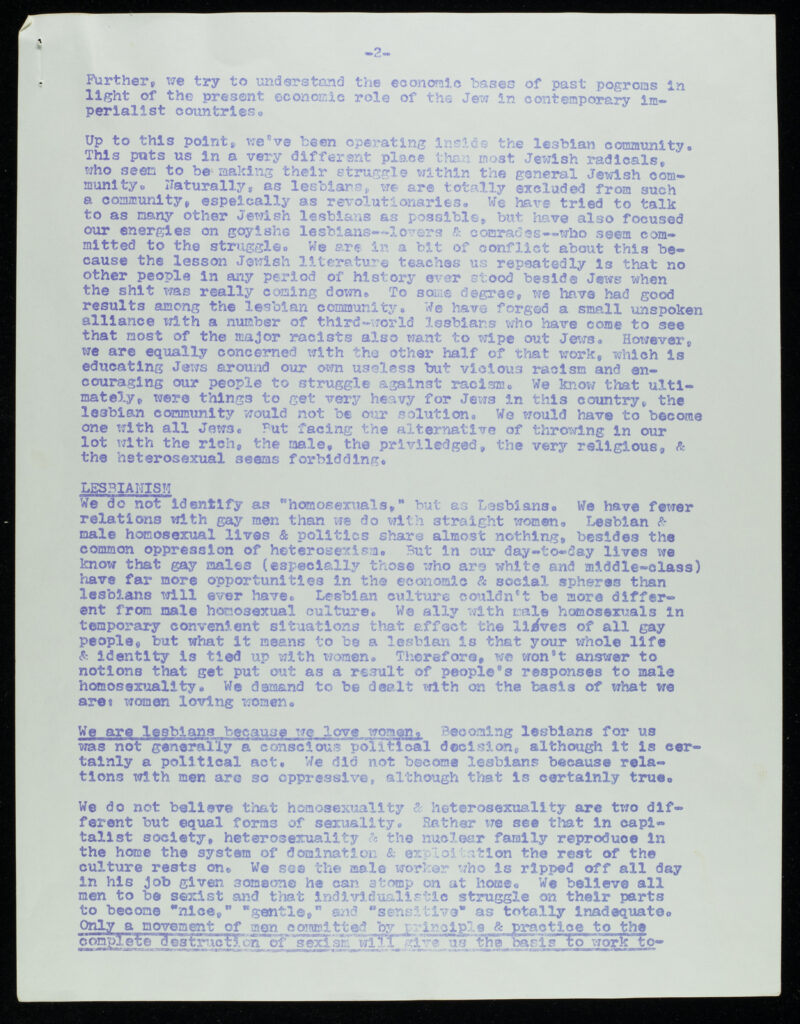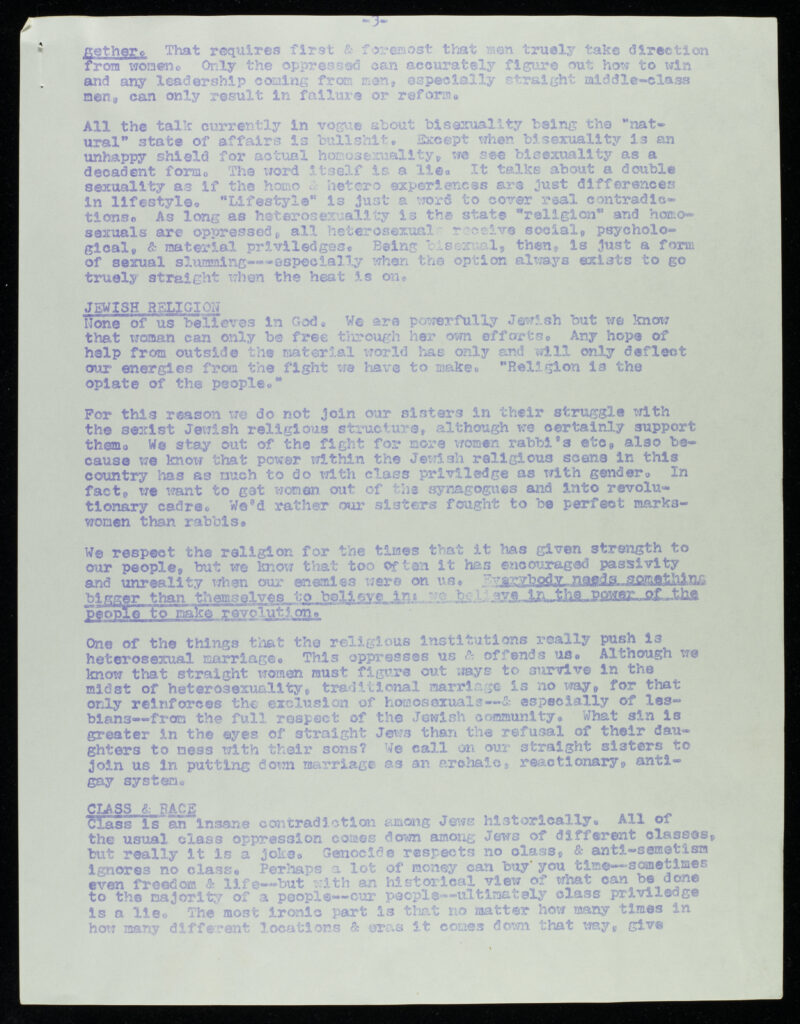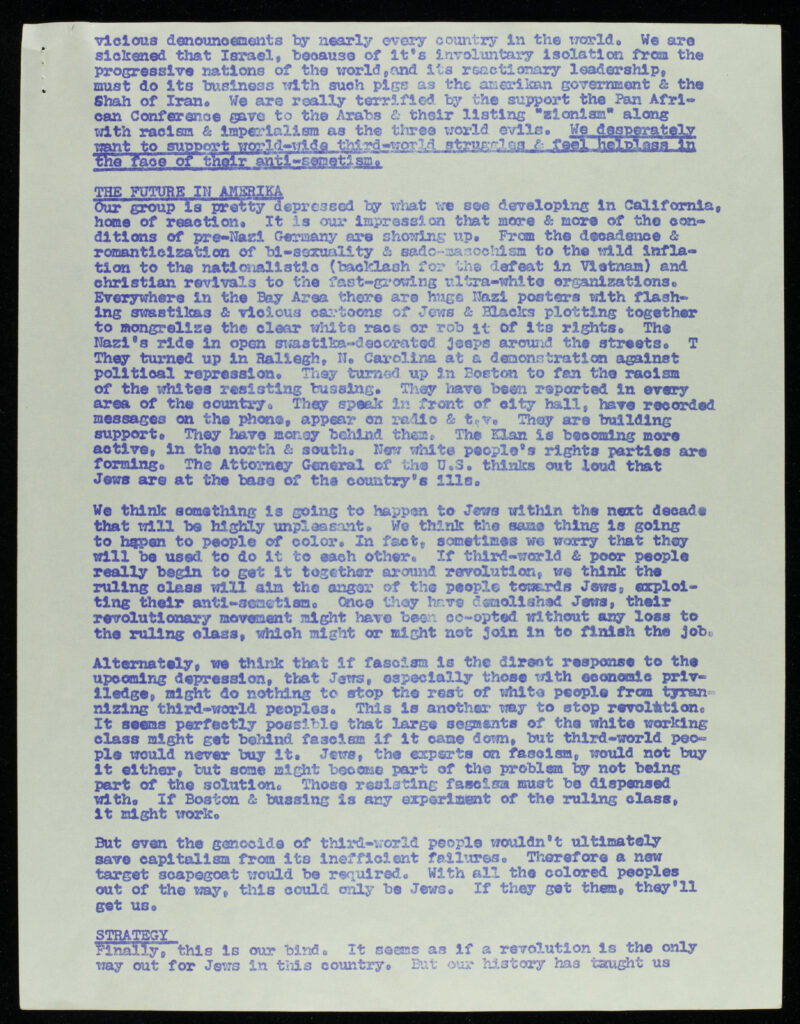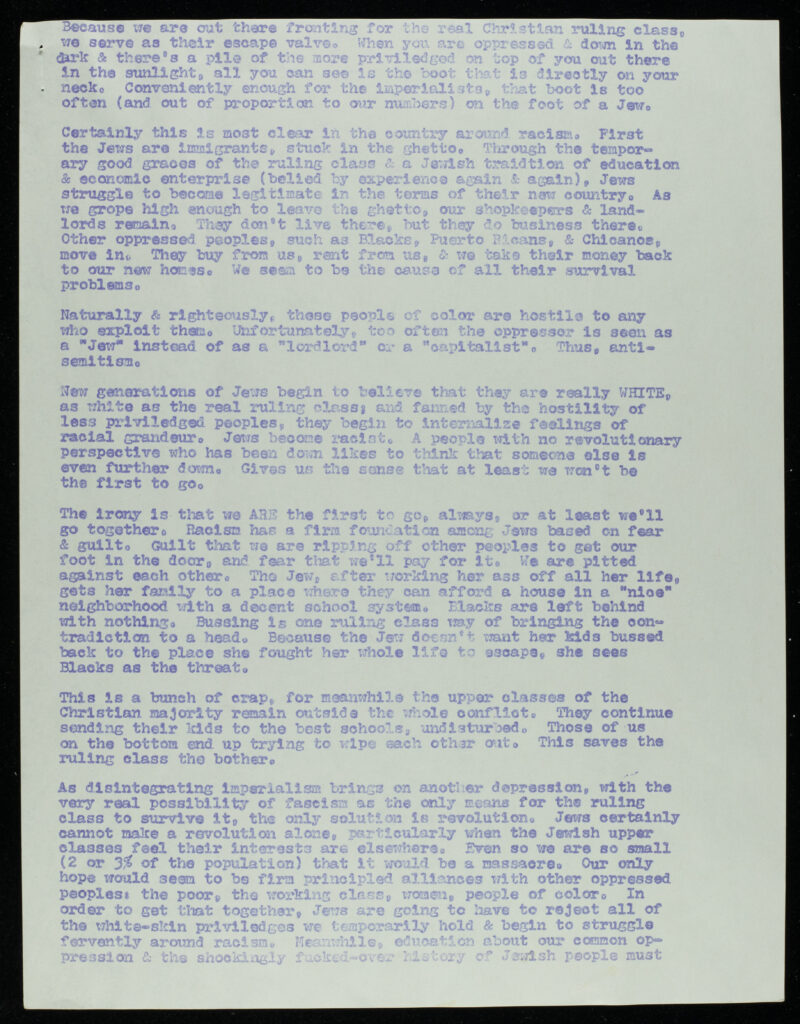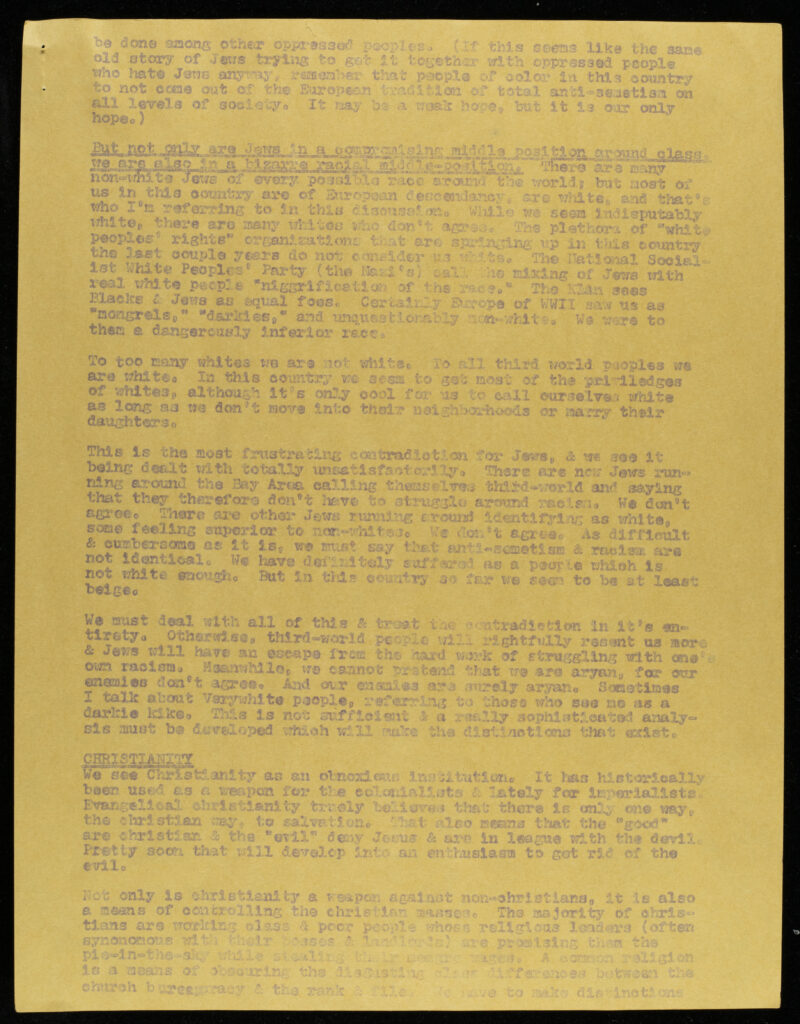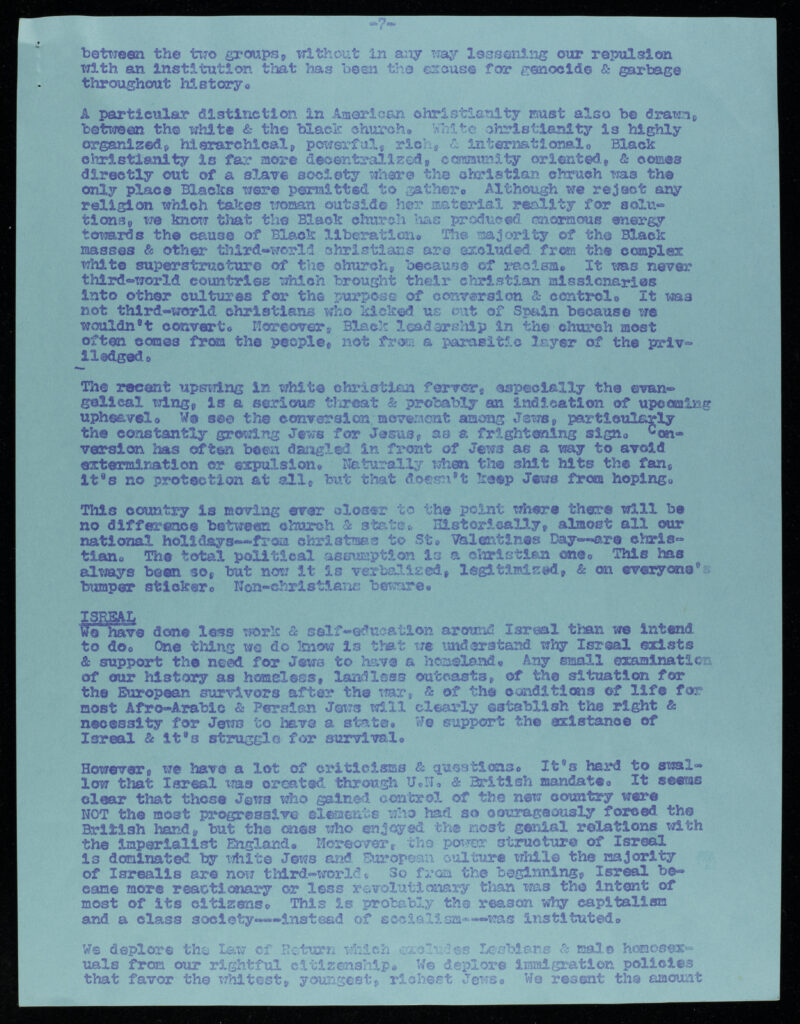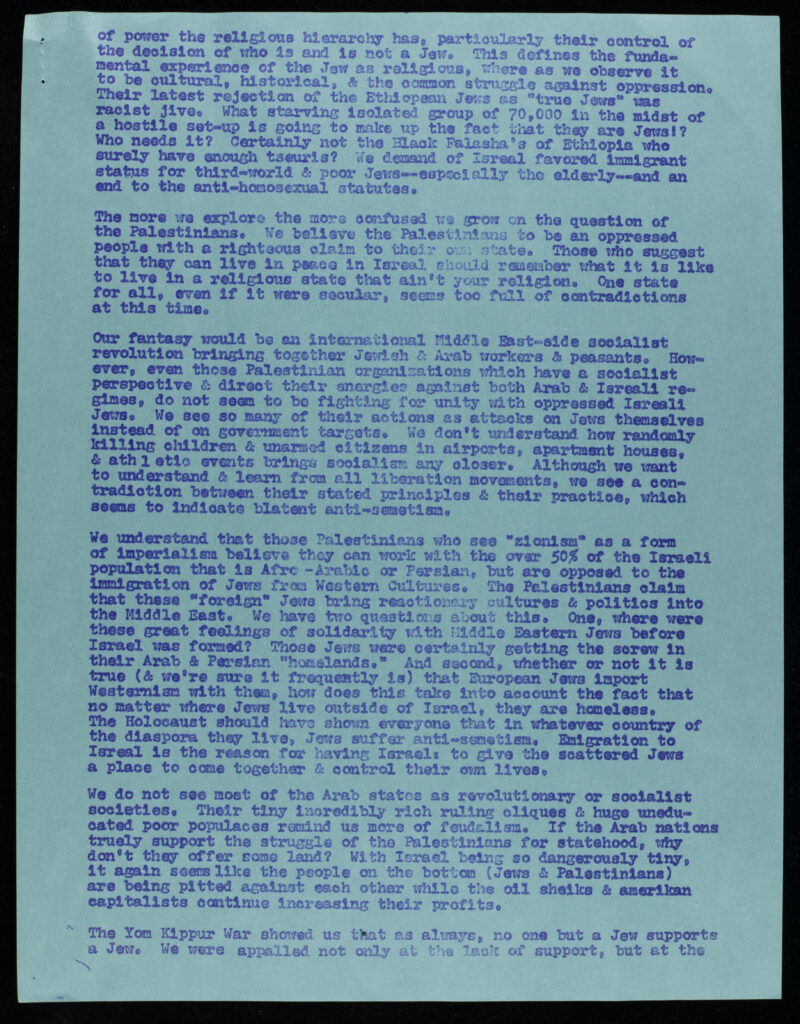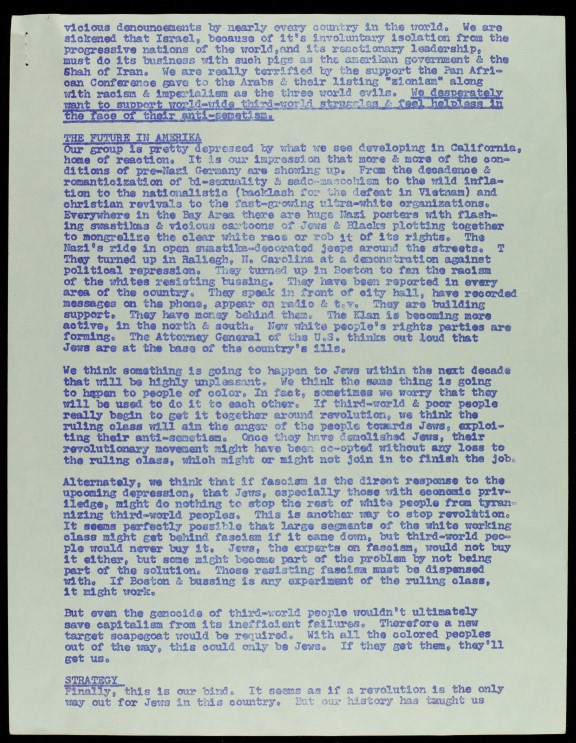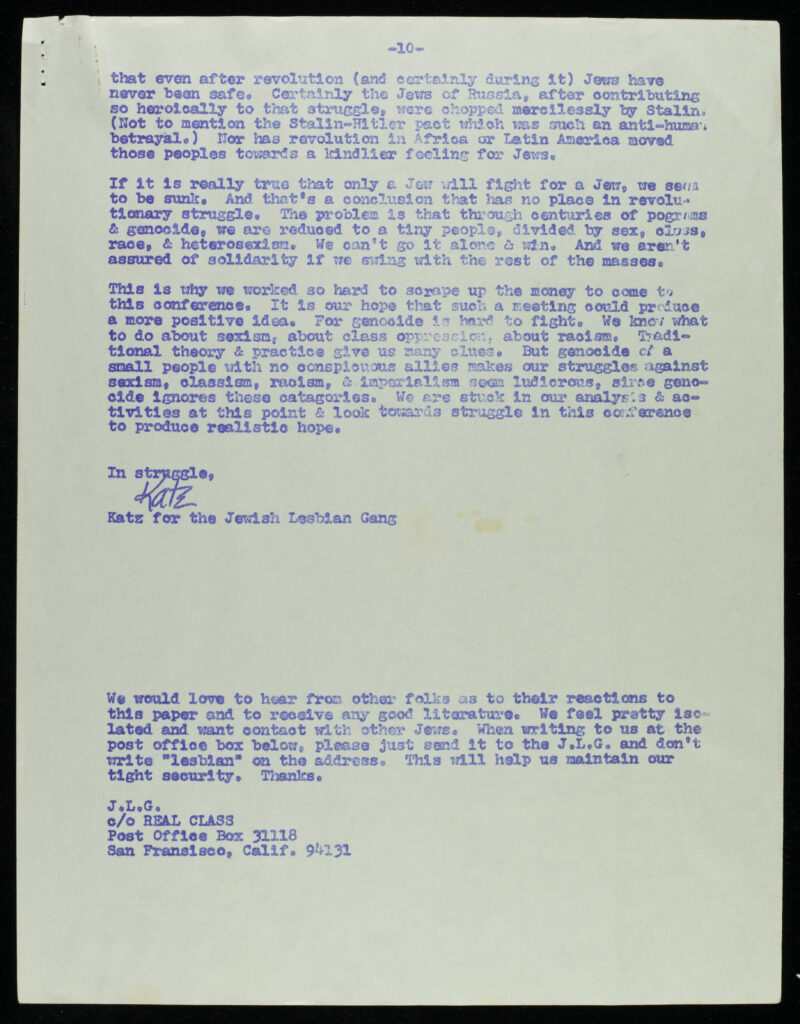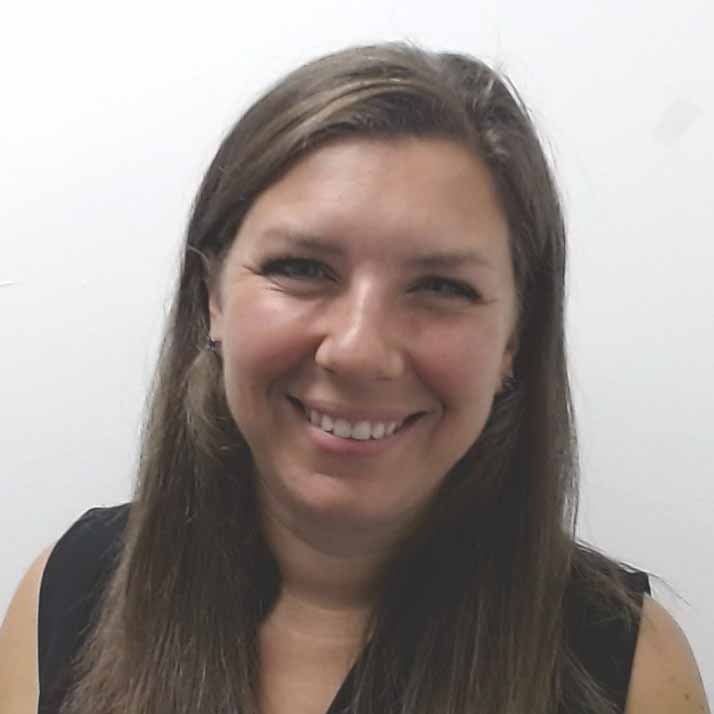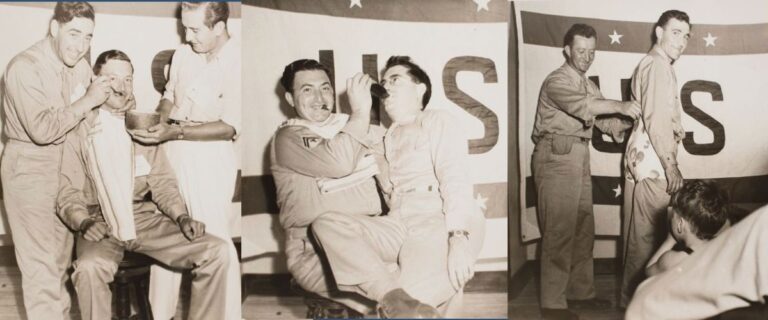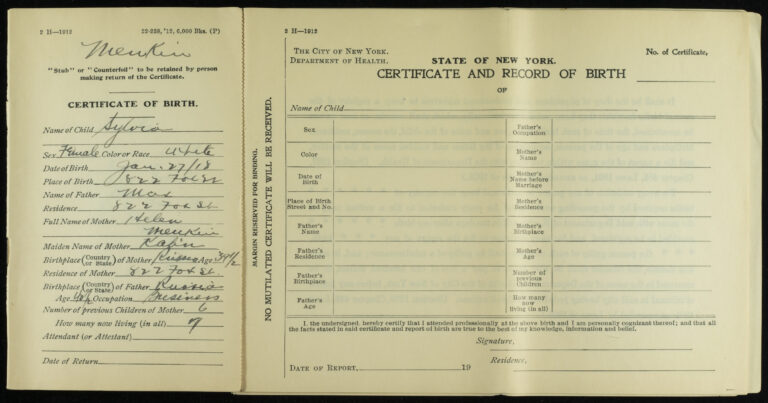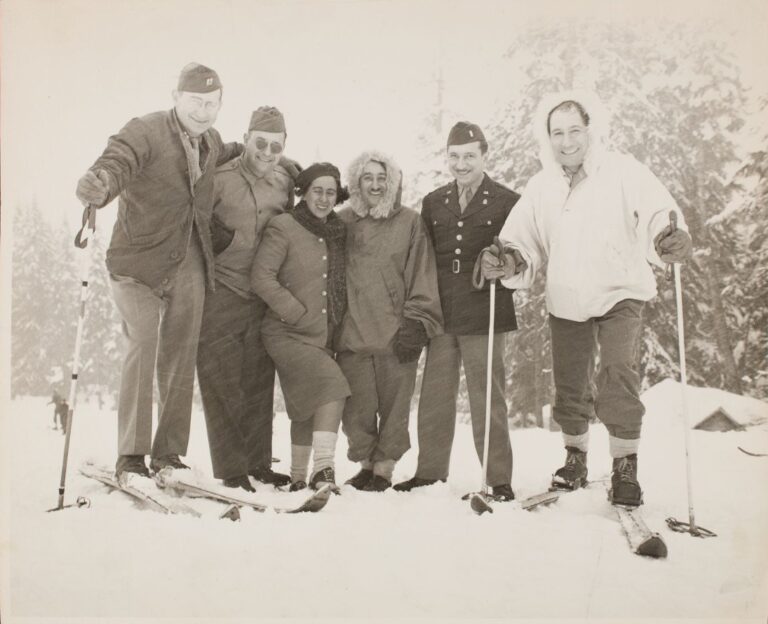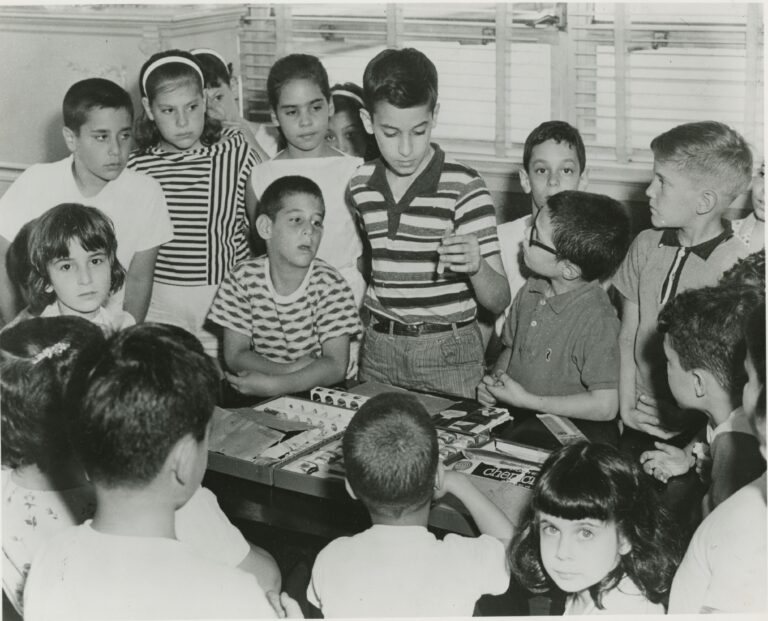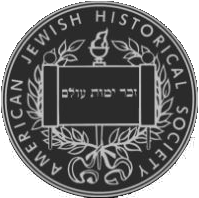The subject files collection in the American Jewish Historical Society archives contains many snippets and snapshots that give us a peek into the lived experience of American Jews from all walks of life, from many different points in history, all across the country. One such item is the San Francisco Jewish Lesbian Gang. The single folder contains only a paper presented by this group at an unnamed conference, dated 1974, and a cursory internet search doesn’t turn up much more information. It lays out the group’s ideology, objectives, and challenges, and is signed merely, “Katz.” It begins:
We are a gang of Jewish lesbian/feminists. We suspect that we will be the only such group participating in this conference. Our main fear concerning these sessions is that our representative would be in some way objectified, catagorized [sic], and forced into the position of being the “conference queer.” To avoid this, and to widen, we hope, the perspective of these meetings, we decided to write up & distribute a paper which runs down our experiences, our politics, our analysis, and our demands. The intention is partly to answer all those questions which any group of mostly heterosexual people with a large number of men in it is bound to ask over & over again. This will clear the way for our main goal which is to forge principled alliances through struggle around analysis and strategy for Jews.
This document provides a fascinating window into the lived experience of Jewish lesbians in 1970s San Francisco, purportedly at the vanguard of the LGBT rights movement and yet the J.L.G. was keenly aware of their vulnerabilities as lesbians, as women, and as Jews – minorities within minorities. They did not see gay men as true allies; rather, they recognized that their alliance with them was conditional. Likewise the second-wave feminists were not fully to be counted on, nor were religiously observant Jews, nor the upperclass intellectuals. Therefore it was the intersection of these identities – gay, Jewish women – that set them as outsiders in any one of those groups.
But it was the Jewish aspect of their identity that they feared made them most vulnerable: “Living in S.F. the last few years (we immigrated from the east, mid-west, & southern California) forced us to see the fast-growing wave of anti-semetism [sic]. The helplessness, fear, & isolation that understanding produced made us unite.” After describing the group’s genesis, the paper is divided into sections that describe the Jewish Lesbian Gang’s stance on and/or place in the following: Lesbianism, Jewish Religion, Class & Race, Christianity, Isreal [sic], The Future in America, and Strategy.
In the final section, Strategy, the authors leave us with these parting thoughts:
If it is really true that only a Jew will fight for a Jew, we seem to be sunk. And that’s a conclusion that has no place in revolutionary struggle. The problem is that through centuries of pogroms & genocide, we are reduced to a tiny people, divided by sex, class, race, & heterosexism. We can’t go it alone & win. And we aren’t assured of solidarity if we swing with the rest of the masses.
This is why we worked so hard to scrape up the money to come to this conference. It is our hope that such a meeting could produce a more positive idea. For genocide is hard to fight. We know what to do about sexism, about class oppression, about racism. Traditional theory & practice give us many clues. But genocide of a small people with no conspicuous allies makes our struggles against sexism, classism, racism, & imperialism seem ludicrous, since genocide ignores those catagories [sic]. We are stuck in our analysis & activities at this point & look towards struggle in this conference to produce realistic hope.
It is this recognition of “outsider” status that the San Francisco Jewish Lesbian Gang was create: to find a home where they didn’t fit otherwise in order to fight oppression. However, their physical safety was top of mind, as we see in a postscript to the document: “We would love to hear from other folks as to their reactions to this paper and to receive any good literature. We feel pretty isolated and want contact with other Jews. When writing to us at the post office box below, please just send it to the J.L.G. and don’t write ‘lesbian’ on the address. This will help us maintain our tight security. Thanks.”
I attempted to figure out which conference this could have been (possibly initialed “JOP,” which appears handwritten at the top of the first page), and to find any other information about the J.L.G., but unfortunately had no luck. If any blog readers out there have further information, we’d love to be able to add to the context!
